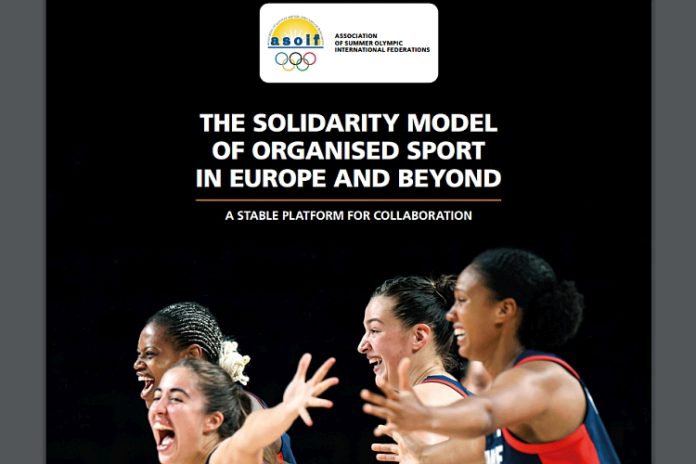(★ So grateful to our (now) 48 donors, who have covered 82% of our site costs for services for the first six months of 2022. Want to help? Please donate here. ★)
One of the frustrating aspects of money is that it doesn’t come with instructions. For athletes who are making money, that has often been their financial downfall.
Canadian-born Chris Pronger, now 47, and a National Hockey League star defenseman for all or part of 18 seasons and a two-time Olympic gold medalist in 2002 and 2010, shared some advice about pro athlete money in a 16-tweet thread on Monday that every athlete – and every family member and friend – should read. Spliced together for readability (but unedited):
I played 20 years in the NHL.
I was one of the highest earning NHL players of all time. And friends with many other pro athletes.
My guess is more than 50% of pro athletes have financial issues in retirement.
Here are 3 problems I’ve seen (and some stories).
Point #1: Athletes tend to be wasteful early in their careers and think the money train will last forever. (Been there done that)
It doesn’t. We are only one injury away from retirement. Always!
I had a $1M signing bonus at 18. That’s a huge sum for a young adult. Huge! Understanding the magnitude of that was daunting say the least.
I was lucky to have great mentors early on. Many aren’t as lucky.
When I first turned pro in 1993 a lot of players at that time made around $300k/year.
Nowadays, the median salary in the NHL is maybe around $2m.
On a $2m/year salary, there is anywhere from 39%-56% in taxes give or take.
But there’s also agents fees (3-5%), escrow and much more
Then there’s job related expenses. A chef/nutritionist for some, off-season trainer, $5k-10k/month for a house near the practice facility.
An athlete can easily spend $20k/month.
And since the avg. career is 4 seasons, an athlete might have $2m-$3m in savings when they’re done. But with spending habits already formed, in a few years there will be issues.
And in my opinion, this is a fairly optimistic scenario.
For example, I’ve heard crazy stories about guys spending $1M in a strip club !
I know a guy who had a $2M signing bonus. He immediately bought $400k in cars, dropped $1.5m on a home for his mom. But didn’t realize he owed taxes on it! knock knock it’s the IRS.
So, while the earning can be great. It’s easy to spend a lot…and the income doesn’t last as long as one might think.
Which brings me to point #2: People take advantage of athletes. You always have to have your guard up.
My teammates and I joked that there were professional deals and then athlete deals.
Financial advisors, lawyers, etc…they assume we don’t read the paperwork (often true for many) and charge us more than the average person.
You’re in your 20’s, a public figure, celebrity of sorts and everyone knows you’re making money.
You’re a mark.
At times I felt like they had 2 sets of documents: one for athletes and another for everyone else.
Another example: Very common to get a pitch for an investment that needs $500k and closes in 3 days.
Why are they doing this? Because they can’t get $ from alleged more sophisticated investors.
After a few errors myself, my rule is: If someone needs an answer right now, the answer is always NO. They learn this lesson real fast.
Another example: athletes are convinced to give power of attorney to advisors, which means they do not control their money.
This is crazy!
Aroldis Chapman, NY Yankees pitcher, had $3m stolen from him by his financial advisor thanks to the power of attorney.
We’re pro athletes. Not pro-investors.
So I understand why we sometimes make that mistake.
But the sad part is that shady professionals are far more common than most think. And it’s a common trap many fall into [not] just athletes.
And finally, point #3: Many players have an entourage to take care of.
It can be hard for many to let go of friends from back home.
I’m lucky not to have had too many issues with this. But we have seen many instances of this.
Often, athletes have the attitude of “if one of us makes it, we all make it.”
That means unqualified friends on payroll, investments in deals because we grew up together, and big entertainment bills.
This is another dangerous trap.
Instead, we need to be vigilant about saying NO, which is always tough.
Pronger’s experience in a high-profile team sport like ice hockey is a lot different than that in track & field or swimming. But his advice echoes the brilliant advice of four-time Trinidadian Olympic sprint medalist and NBC analyst Ato Boldon from his presentation at The Business of Sport Conference in Jamaica in 2011. The Jamaica Observer’s story on the list was headlined “The 10 Commandments, according to the gospel of Ato Boldon”:
(10) Save some of all that free gear that you constantly give away — it will end.
(9) No one ever remembers the pain but medals are forever. Push. No pro-track athlete has ever died from a workout. Post-career regret sucks.
(8) No one from that shoe company you love so much loves you. The romance with no finance is a nuisance. The more you love them and the more in love you are, the less you make.
(7) The competitors you think you hate will be your friends when you are retired. Don’t take it that seriously. Compete without hate.
(6) Figure out what job you will do next in early or mid-career not post-career. Few get to decide when they retire. Most get forced out.
(5) One day you’ll awaken and you won’t be fast anymore. Does a career define your whole life or existence? It shouldn’t. Have a life so you don’t have to go get one after.
(4) Make use of the best things about being a track athlete — the travel. Years in exotic locales and all you know are hotels and McDonalds, (that) is pointless. Get outside. Take pictures. Learn something. Experience other lands.
(3) Your career is infinitely more fun with a good training group. Choose your training group wisely. Chances are if you hate your career after, it’s because you either hated your training partners, bounced around several camps or had no training partners.
(2) Europe can be wild and crazy and fun and it can also shorten your career drastically if you are incapable of not acting a damn fool there. European wine and men/women have prematurely ended many a promising career.
(1) Save your money like your life depends on it — it does. Make your money earn more while you are earning a lot of it and yes, get a pro to do this. Your cousin who is good with money does not count.
Great advice then, and now; feel free to share this post with people who should know.
You can receive our exclusive TSX Report by e-mail by clicking here. You can also refer a friend by clicking here, and can donate here to keep this site going.
For our 832-event International Sports Calendar for 2022 and beyond, by date and by sport, click here!


























